- Home
- Anna Campbell
Lord Garson’s Bride
Lord Garson’s Bride Read online
Published by Anna Campbell
Copyright 2018 Anna Campbell
Cover Design: © Hang Le
ISBN: 978-1-947414-09-9
All rights reserved. No part of this book may be reproduced in any form or by any electronic or mechanical means, including information storage and retrieval systems - except in the case of brief quotations embodied in critical articles or reviews - without permission in writing from the author, Anna Campbell. This book is a work of fiction. The characters, events, and places portrayed in this book are products of the author’s imagination and are either fictitious or are used fictitiously. Any similarity to real persons, living or dead, is purely coincidental and not intended by the author.
License Notes
This ebook is licensed for your personal enjoyment only. This ebook may not be re-sold or given away to other people. If you would like to share this book with another person, please purchase an additional copy for each recipient. If you’re reading this book and did not purchase it, or it was not purchased for your use only, then please return to your ebook retailer and purchase your own copy. Thank you for respecting the hard work of this author.
Table of Contents
Chapter One
Chapter Two
Chapter Three
Chapter Four
Chapter Five
Chapter Six
Chapter Seven
Chapter Eight
Chapter Nine
Chapter Ten
Chapter Eleven
Chapter Twelve
Chapter Thirteen
Chapter Fourteen
Chapter Fifteen
Chapter Sixteen
Chapter Seventeen
Chapter Eighteen
Chapter Nineteen
Chapter Twenty
Chapter Twenty-One
Chapter Twenty-Two
Chapter Twenty-Three
Chapter Twenty-Four
Chapter Twenty-Five
Chapter Twenty-Six
Chapter Twenty-Seven
Chapter Twenty-Eight
Chapter Twenty-Nine
Chapter Thirty
Chapter Thirty-One
Chapter Thirty-Two
Chapter Thirty-Three
Chapter Thirty-Four
Chapter Thirty-Five
Chapter Thirty-Six
Chapter Thirty-Seven
Chapter Thirty-Eight
Chapter Thirty-Nine
Epilogue
The Seduction of Lord Stone
About the Author
Acknowledgements:
To the world’s greatest critique partner, Annie West.
*
Chapter One
*
Cavell Court, Dorset, February 1833
“Lord Garson has called, my lady.”
Her butler’s announcement made Lady Jane Norris look up from the huge desk in the library where once her late father, Lord Sefton, had sat to run his estates. Paper littered every surface, as she sorted through the archives. She supposed she could leave this massive task for her cousin Felix, when he took over next month. But a lingering sense of familial obligation had her determined to pass everything to the new earl in good order.
“Garson is here?” she asked, unable to hide her surprise.
Hugh Rutherford, Baron Garson, had known her since she was toddling, although in recent years, he’d rarely visited this isolated manor house in the West Country. She’d last seen him six months ago, when he attended her father’s funeral.
“Yes, my lady,” Billings said. “Are you at home to visitors this afternoon?”
“I suppose so.” Jane cast a rueful glance at her shabby gray frock, with its creases and ink stains. She wasn’t dressed to receive one of the ton’s darlings. “Did he say what he wanted?”
“I’m afraid not.”
She should change into a more suitable gown and tidy her mop of red hair before she greeted her guest. Although she was unhappily aware that whether she combed her hair or not, she remained Lord Sefton’s plain, sensible, spinster daughter.
Oh, stop feeling sorry for yourself, Jane Norris. “Would you please show his lordship into the drawing room, Billings, and say I’ll be with him presently? And perhaps arrange some refreshments.”
Once Billings had gone, instead of dashing upstairs, she stared sightlessly at an account for some bonnets for her mother. Given her mother had been dead nearly twenty years, she could safely throw it away. But she held it in front of her, as her mind raced with conjecture. Garson? Here? Why? It couldn’t be a casual call. Nobody was ever just passing. Cavell Court was out of the way, and the roads leading to it were frightful, especially during a bad winter like this one.
With a sigh, Jane rose and smoothed her hair, confined in a loose knot that she feared was more loose than knot. Her father’s habit of retaining every scrap of paper that crossed his desk frequently made her run her hands through her hair in frustration.
Once she finished with these papers, she’d completed her last duty at the estate. The task felt like some sort of rite. Felix had been nice enough to let her spend her six months of mourning in the house she’d grown up in. The reprieve gave her a chance to say goodbye to the only home she’d ever known, before she ventured into an unknown future. She also said a final farewell to the father she loved and missed, whatever his faults. For over a decade, she’d acted as his right hand, busy and purposeful. Now the time stretching before her seemed depressingly aimless.
At least Garson’s visit might distract her from the constant round of sorrow and worry. Lately she felt like she trudged through an endless mire of toil and exhaustion and grief. Lately? She’d had ten lonely years of shouldering the burdens of the estate and caring for her ill father. No wonder she was so tired, she felt like crying.
*
When Jane came downstairs again, she was in a clean gown, and her hair was scraped back into a bun. She crossed the hall to the drawing room. The watery sun lit a space crowded with heavy, old-fashioned furniture. Jane suspected the new Lady Sefton would consign most of the house’s current furnishings to the bonfire.
Standing in profile to her was Lord Garson, the son of her father’s best friend. Six years older than her. Rich. Handsome. Widely praised as the perfect gentleman.
And notorious as the most famous rejected suitor in England.
Three years ago, Garson had been on the point of marrying Morwenna Nash, a naval captain’s widow. But Robert Nash turned out to be not as dead as rumor had him, returning to disrupt the ball celebrating Garson’s betrothal. When his fiancée reunited with her husband, she left Garson very publicly nursing a broken heart.
Jane stood in the doorway and observed her childhood friend, curious to see the changes in him. He was an attractive man, with regular features and thick, coffee-brown hair. Tall, vigorous, powerful. The world was his oyster, one would imagine.
Except as he stared pensively into the fire, a melancholy air clung to him. The flames played across his chiseled features, highlighting the straight nose and square, determined lines of chin and jaw. And the grim set of his generous mouth.
When they’d spoken at her father’s funeral, Jane had been shocked at his appearance—she hadn’t seen him for a couple of years, but she’d heard about his romantic disappointment. He’d struck her then as old beyond his years. On this winter afternoon, that impression strengthened.
What a pity that he was so unhappy. She’d always liked him. A kind boy had grown up to be a nice man. He deserved better than to spend his life eating his heart out over a woman he could never have.
Watching him like this without his knowledge, she started to feel awkward, like she intruded on a private matter that was none of her
concern. She leveled her shoulders, plastered a smile to her face, and stepped into the room. “Lord Garson, what an unexpected pleasure.”
He looked up, and she watched the social mask descend over his features. The brown eyes warmed as he bowed, and the downturned lips curved into a smile. “You used to call me Hugh, Jane. Or does this mean I must call you your ladyship?”
As children, they’d seen each other often. Less often since they’d reached adulthood. Still, he was right. “Then welcome, Hugh,” she said with a curtsy. “I didn’t know you were in the neighborhood.”
Briefly that impressive jaw hardened, and a muscle flickered in his tanned cheek. He drew himself up to his full height, making Jane feel ridiculously small, although at nine inches over five feet, she wasn’t exactly tiny. “I came down to see you.”
This visit became more baffling by the minute. “Especially?”
He nodded. “Especially.”
Then in an instant, she understood, and gratitude lightened her heavy heart. “How very kind you are. I didn’t expect you to remember that I’m leaving Cavell Court.”
Billings came in with two footmen and set up the sideboard with cakes and sandwiches. There was ale for Hugh, and tea for Jane. By the time the servants had gone, Hugh was sitting in a leather chair by the fire with his long legs, encased in gleaming Hessians, extended over the faded rug. Jane perched on the window seat with a cup of tea and a cheesecake. She’d miss Mrs. Kelly, the family cook, when she left.
From habit, she added Mrs. Kelly to the long list of everything else she’d miss when she forsook her home. Then she consigned the whole lot to the dark corner, where she locked everything she endured because she had no choice to do otherwise.
When Hugh lifted his tankard for a deep drink, Jane found herself strangely fascinated with the movement of that strong throat as he swallowed. He wore a simple neck cloth, but she noticed that his clothing was more elaborate than was usual for a man in the country. That dark blue coat was a masterpiece of Savile Row tailoring, obvious even to someone as woefully out of touch with fashion as she was. Perhaps after he left her, he intended to go on somewhere else.
“Of course I remembered you had to move out,” he said, returning to their earlier conversation. “I wondered about your plans.”
She and Hugh had spoken at the funeral, but she’d been lost in a fog of grief, and busy playing hostess to the crowd of mourners besides. There hadn’t been occasion for anything beyond what politeness demanded.
“I appreciate you making the effort to check that I’m all right.” She slid her teacup onto the windowsill. “But it wasn’t necessary. I’ll be in Town in a fortnight, staying with my sister Susan and her family.”
He put down the tankard and surveyed her out of somber dark eyes. He’d always been thoughtful rather than flashy. But the serious habit seemed to have grown on him over the years. She wondered when he’d last laughed from sheer joy. A long while ago, she’d wager.
“You never had a London season, did you?”
“One was planned, then Papa fell ill.” And she’d become nurse and companion and estate manager.
“You’ll love the social whirl.”
Her lips twisted in self-derision. “Oh, I’m too old for all that nonsense.”
“Rot, Jane. You’ll find London provides plenty of amusement for a mature woman.”
She tried not to mind that he didn’t argue with her about her age. However ancient she felt after these last difficult months, she was only twenty-eight. She made herself respond lightly. “I hope so.”
His expression was assessing rather than disapproving. “So you’re going to live with Susan?”
“No.” Jane barely hid a shudder. She struggled to sound enthusiastic about her intentions. “That’s only a visit. I hope to find a suitable house in a provincial town. Perhaps Lyme or Weymouth. I’d like to live by the sea. Miss Ashton, my old governess, has agreed to come along to preserve appearances.”
This definitely didn’t please him. Those thick mahogany brows drew together over his long, straight nose. “You can’t be looking forward to that. Within a month, you’ll be bored stiff. Why don’t you stay in London?”
Because in the years following her mother’s death, her father had made a series of unwise investments, and the money Jane had inherited didn’t allow for high jinks in the capital. But that was none of Hugh’s business. In fact, she was puzzled that he thought he had some right to advise her on her future. Despite long acquaintance, as adults they verged on being strangers.
“I like Dorset,” she said.
“You haven’t been anywhere else,” he said shortly. “Wait until you’ve seen London and tasted what it has to offer.”
Actually she had a suspicion that London just offered more family duty. She loved her sister, but she wasn’t blind to Susan’s intention to foist the four youngest children onto Jane, while she launched her oldest daughter Lucy into society.
“Perhaps,” Jane said neutrally. “I haven’t made any final decisions.”
“Susan hasn’t offered you a permanent home?”
A permanent post as poor relation and uncredited governess, he meant. “Yes, she has. But it’s time I tested my independence.”
Compassion turned Hugh’s eyes a deep velvety brown, so deep Jane felt she could drown in the rich color. Why hadn’t she ever noticed what nice eyes he had?
“High time.” He paused. “Although I’m hoping after we’ve spoken, you might choose another path altogether.”
She frowned. “I don’t understand.”
He smiled, although she couldn’t feel he put his heart into it. “It’s a credit to your modesty that you don’t.”
Good heavens, what was all this about? It sounded like the prelude to a proposal of marriage. She’d had a few of those over the years, from older gentlemen who noted her devotion to her father and wanted her to look after them with similar dedication in their declining years.
But Hugh was no decrepit old codger. He was in the prime of life.
“Are you well, Hugh?” she asked in concern, studying that tanned face and the large, powerful body.
Well? He appeared almost aggressively fit.
He looked startled and sat up straight in his chair. “Are you worried about my sanity?”
She supposed the question sounded bizarre. “I’m sorry. I was wondering if you needed a nurse.”
At least his laugh emerged more naturally than his smile. “Not a nurse, you goose.”
He stood and without shifting his attention from her, leaned one brawny arm on the mantelpiece. The room suddenly seemed very small. Jane had never before been quite so aware of his vigorous, masculine energy.
Cavell Court had turned into a female domain, as her father faded and Jane, by necessity, took over the estate. Lord Garson seemed to come from a larger, more charged universe.
She swallowed to banish a ridiculous nervousness and edged back on the window seat until she bumped into the sill behind her. “I thought perhaps you might have a sick relative, if you don’t require a nurse for yourself.”
The genuine fondness in his expression reminded her how she’d hero-worshipped him when she was a child. “You’ve been tucked up away from the world too long, Jane. Surely you can guess what I want. I’m trying in my ham-fisted way to express my admiration.”
That left her more bewildered than ever. “Your admiration?” she repeated in a shamefully scratchy voice.
“Jane, I’m not here seeking a nurse.” His smile was wry as he stared down at her. “I’m here seeking a wife.”
*
Chapter Two
*
Garson’s heart sank as he watched shock flood Jane’s expression. He’d assumed she’d already have some idea of why he’d called, togged out in his best clothes and requesting a private interview, but her reaction made it clear that his offer came as a bolt from the blue. Not a particularly welcome bolt, at that.
Although she was no beaut
y, he liked her face. The even features were pleasing, and those wide, shining gray eyes didn’t miss much. He remembered that as a girl, she’d had a sly sense of humor and a quirky take on life and its vicissitudes.
But that had been before her father’s illness. Garson hadn’t seen much of her in recent years, an admission that now made him feel a little guilty. Studying the drawn face beneath that severely confined mass of dark red hair, he discerned few traces of her former spark.
She didn’t have to tell him the price family duty had exacted from her. He could see it in her features. Only her extravagant wealth of hair gave any real hint of vitality.
As a younger man, he’d never thought of Jane Norris as anything but the daughter of his father’s friend. At least in daylight hours. He’d frequently woken from heated dreams, where he was entwined in skeins of silky red hair, the exact color of Jane’s. Dreams that had been unacceptable then, and now struck him as downright perverse, with her sitting before him as neat and self-contained as a bloody nun. Her gray, high-necked dress, unadorned with anything as frivolous as a frill or a ribbon, just confirmed the fiercely virginal impression.
“What a mad idea.” In a nervous movement, one white hand rose to her throat. She had pretty hands, he noticed, slender and capable.
His eyebrows arched with a touch of hauteur. By God, she didn’t shirk from trampling his vanity. At the very least, he’d assumed she’d find his proposal flattering. In his more optimistic moments, he’d imagined her rushing headlong to accept him. Clearly that optimism was unfounded. “I’m sorry you think so.”

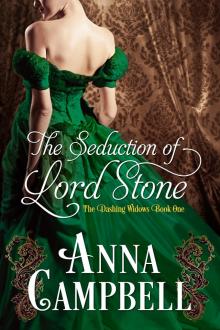 The Seduction of Lord Stone
The Seduction of Lord Stone The Highlander’s Defiant Captive: The Lairds Most Likely Book 4
The Highlander’s Defiant Captive: The Lairds Most Likely Book 4 The Highlander’s English Bride: The Lairds Most Likely Book 6
The Highlander’s English Bride: The Lairds Most Likely Book 6 The Highlander’s Christmas Quest: The Lairds Most Likely Book 5
The Highlander’s Christmas Quest: The Lairds Most Likely Book 5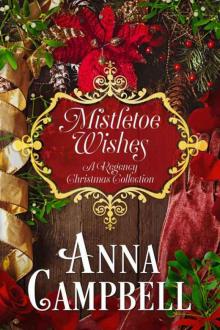 Mistletoe Wishes
Mistletoe Wishes The Highlander's Lost Lady
The Highlander's Lost Lady Two Secret Sins
Two Secret Sins The Highlander's Christmas Quest
The Highlander's Christmas Quest The Highlander's Defiant Captive
The Highlander's Defiant Captive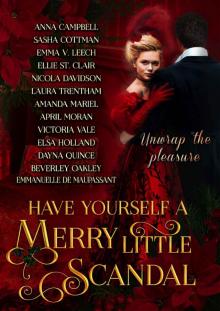 Have Yourself a Merry Little Scandal: a Christmas collection of Historical Romance (Have Yourself a Merry Little... Book 1)
Have Yourself a Merry Little Scandal: a Christmas collection of Historical Romance (Have Yourself a Merry Little... Book 1) The Laird's Christmas Kiss
The Laird's Christmas Kiss The Highlander’s Lost Lady: The Lairds Most Likely Book 3
The Highlander’s Lost Lady: The Lairds Most Likely Book 3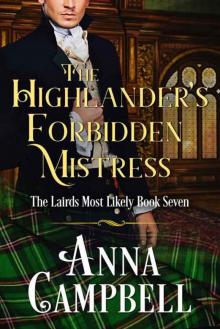 The Highlander's Forbidden Mistress
The Highlander's Forbidden Mistress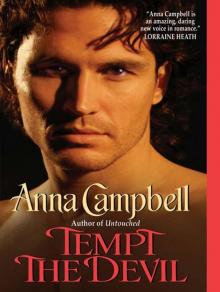 Tempt the Devil
Tempt the Devil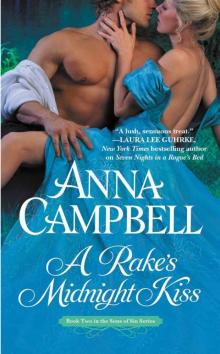 A Rake's Midnight Kiss (Sons of Sin)
A Rake's Midnight Kiss (Sons of Sin)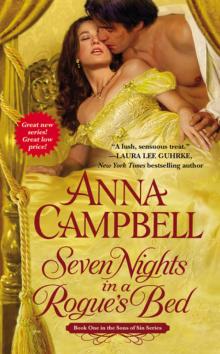 Seven Nights in a Rogue's Bed
Seven Nights in a Rogue's Bed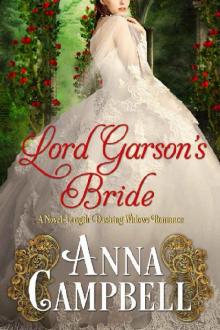 Lord Garson’s Bride
Lord Garson’s Bride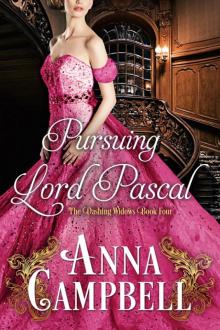 Pursuing Lord Pascal
Pursuing Lord Pascal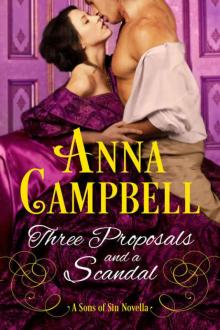 Three Proposals and a Scandal: A Sons of Sin Novella
Three Proposals and a Scandal: A Sons of Sin Novella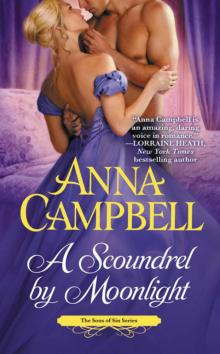 A Scoundrel by Moonlight
A Scoundrel by Moonlight The Laird's Willful Lass
The Laird's Willful Lass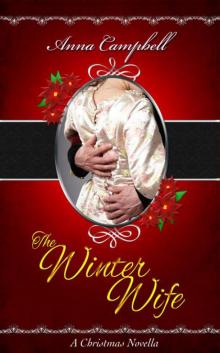 The Winter Wife
The Winter Wife Stranded With The Scottish Earl
Stranded With The Scottish Earl The Laird’s Christmas Kiss: The Lairds Most Likely Book 2
The Laird’s Christmas Kiss: The Lairds Most Likely Book 2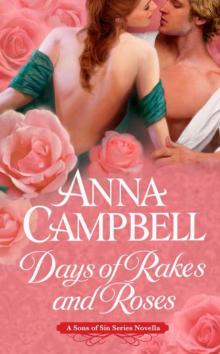 Days of Rakes and Roses
Days of Rakes and Roses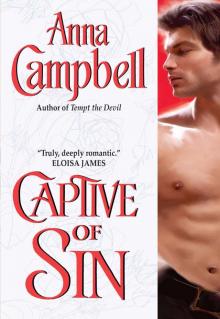 Captive of Sin
Captive of Sin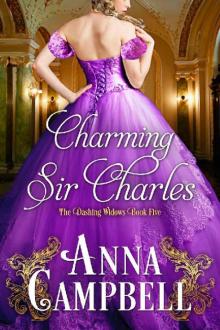 Charming Sir Charles (Dashing Widows Book 5)
Charming Sir Charles (Dashing Widows Book 5)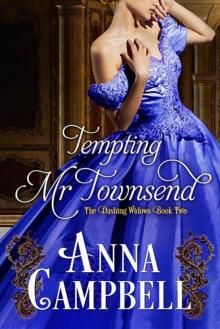 Tempting Mr. Townsend (Dashing Widows)
Tempting Mr. Townsend (Dashing Widows)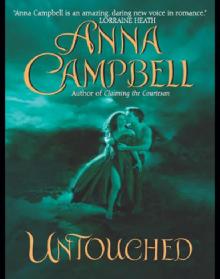 Untouched
Untouched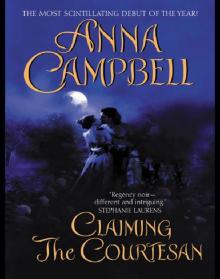 Claiming the Courtesan
Claiming the Courtesan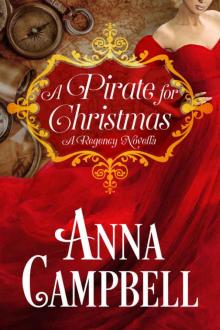 A Pirate for Christmas: A Regency Novella
A Pirate for Christmas: A Regency Novella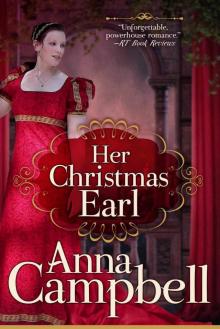 Her Christmas Earl
Her Christmas Earl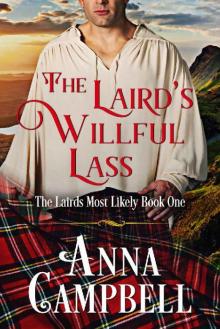 The Laird's Willful Lass (The Likely Lairds Book 1)
The Laird's Willful Lass (The Likely Lairds Book 1)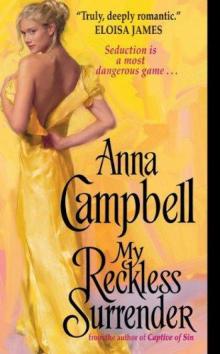 My Reckless Surrender
My Reckless Surrender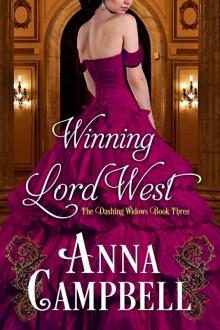 Winning Lord West
Winning Lord West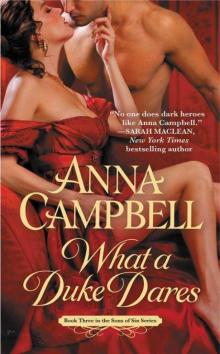 What a Duke Dares
What a Duke Dares